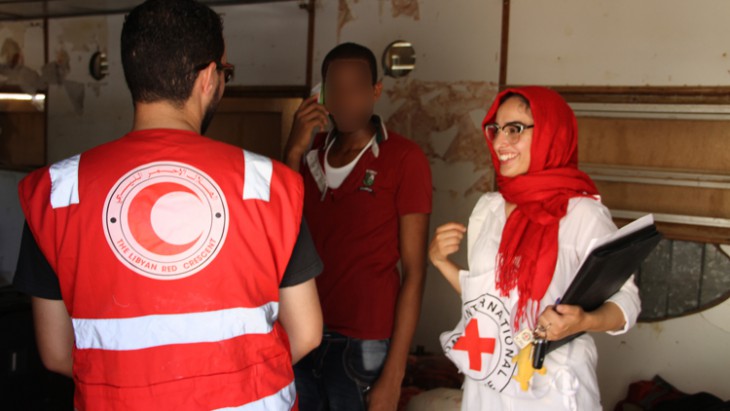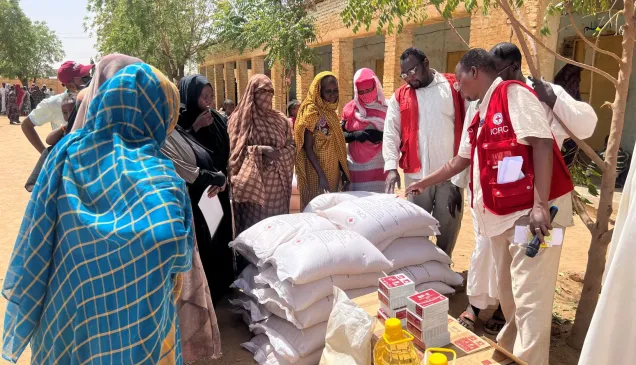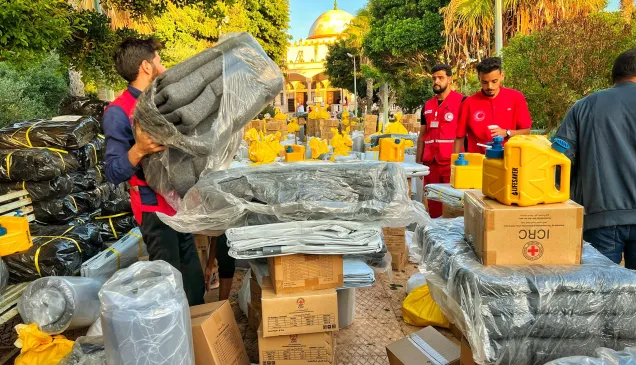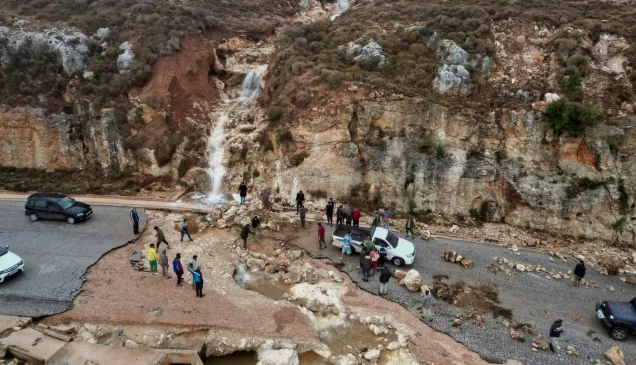Libya: Tens of thousands affected by fighting

Prolonged conflicts in Benghazi and the west of Libya have displaced tens of thousands of people inside the country. The ICRC has distributed emergency medical supplies to more than 20 hospitals and assistance to more than 22,000 displaced people since mid-July, either directly or through the Libyan Red Crescent and other local partners.
Heavy fighting in Benghazi is having a serious impact on hospitals. "Services at the main hospitals have been severely disrupted by the unsettled security conditions, the departure of foreign workers, and the acute shortage of medical supplies," said Antoine Grand, head of the ICRC delegation in Libya, who is currently based in Tunis. The fighting has prompted tens of thousands of people to flee Benghazi, while many more have been displaced within the city.
Fighting taking place to the south and west of Tripoli, in the western part of the country, and in Sabha and Ubari in the south, is also causing displacement and affecting the response capacities of the main hospitals and other health-care facilities there.
"There are frequent shortages of fuel, power and water supplies in the violence-affected areas; the prices of basic foods have soared, and infrastructure has suffered major damage," said Mr Grand. In addition, the security situation in some parts of the country has seriously deteriorated, making it extremely difficult for local and international humanitarian organizations to reach the victims.
"We are reminding all parties to the conflict that they must respect health-care workers and facilities, and facilitate their work," said Mr Grand. The lack of safe access to health care that has resulted from the violence is likely to have significant humanitarian consequences.
The ICRC is providing support for the Libyan Red Crescent, the main humanitarian organization working in the country. Through its extensive network of 35 branches and more than 2,000 active volunteers, the Libyan Red Crescent has been delivering assistance, evacuating the wounded and the dead, and negotiating humanitarian corridors wherever fighting has been taking place.

Misrata, Libya. A Libyan Red Crescent volunteer and an ICRC staff member enable a young boy to contact his family abroad. © LRCS / A. Alghwail
"Although our international staff were temporarily relocated to Tunis in July owing to the escalation of violence in Tripoli, we continue to respond to needs and to do our best in a very volatile security environment through our local staff and the Libyan Red Crescent," said Mr Grand. In all, the ICRC has 140 staff based in Tripoli, Benghazi, Misrata and Sabha.
From mid-July to mid-November, the ICRC:
- provided food rations for more than 13,000 displaced people and other essentials for a further 22,000 that were delivered by the Libyan Red Crescent, and provided aid for 930 migrants at Al-Karareem holding centre in Misrata;
- delivered anaesthetics, wound-dressing materials, surgical drainage materials, plaster casting and suture sets to more than 20 hospitals and other health-care facilities, including Tripoli Medical Centre, Misrata Crisis Unit, Benghazi Medical Centre, Sabha Medical Centre, the hospitals of Mitiga, Zawiya, Garhyan, Zintan, Misrata, Al-Marjs and Al-Jalah, and outpatient care facilities in Al-Ghrefa, Idree, Aradah and Talaqena;
- donated wound-dressing materials to the Libyan Red Crescent for pre-hospital casualty care;
- delivered 6,000 blood bags and the same number of blood-giving sets to the Libyan Red Crescent blood bank in Benghazi;
- delivered 1,200 body bags together with personal protective equipment to 15 Libyan Red Crescent branches;
- organized four-day training courses on dead-body management, restoring contact between family members and other topics in Tunis and Zarzis in which 29 Libyan Red Crescent volunteers, among others, participated;
- maintained regular contact with the main morgues of Tripoli and Benghazi to ensure that mortal remains would be handled in a dignified manner, and made technical recommendations on forensic issues;
- monitored the cases of people needing help, including members of dispersed families, unaccompanied children, families of missing persons, detainees, and stranded migrants;
- provided the Libyan Red Crescent with three ambulances, five trucks, 12 other vehicles and telecommunication equipment to enhance its emergency-response capacity.
For further information, please contact:
Salah Uddin, ICRC Tunis, tel: +216 26 903 485
Jean-Yves Clémenzo, ICRC Geneva, tel: +41 22 320 22 71 or +41 79 217 32 17



